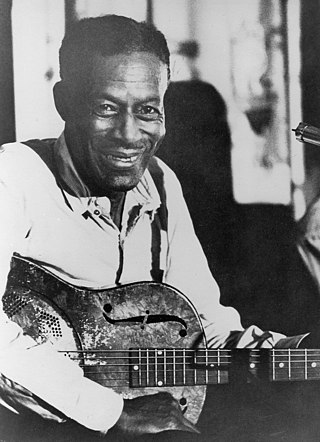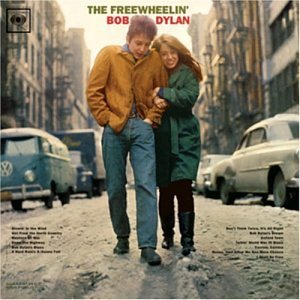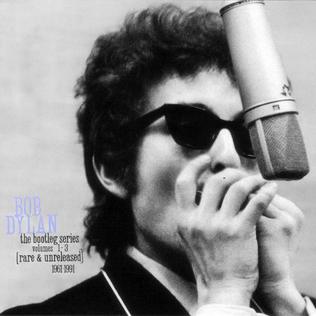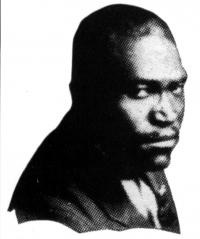Related Research Articles

Edward James "Son" House Jr. was an American Delta blues singer and guitarist, noted for his highly emotional style of singing and slide guitar playing.

Columbia Records is an American record label owned by Sony Music Entertainment, a subsidiary of Sony Corporation of America, the North American division of Japanese conglomerate Sony. It was founded on January 15, 1889, evolving from the American Graphophone Company, the successor to the Volta Graphophone Company. Columbia is the oldest surviving brand name in the recorded sound business, and the second major company to produce records. From 1961 to 1991, its recordings were released outside North America under the name CBS Records to avoid confusion with EMI's Columbia Graphophone Company. Columbia is one of Sony Music's four flagship record labels: Epic Records, and former longtime rivals, RCA Records and Arista Records as the latter two were originally owned by BMG before its 2008 relaunch after Sony's acquisition alongside other BMG labels.

Meritt Records was a jazz and blues record company and label that existed from 1925 to 1929. It was founded in Kansas City by Winston Holmes, the owner of a music store. Records were made in his studio and sold only in his store.

The Freewheelin' Bob Dylan is the second studio album by American singer-songwriter Bob Dylan, released on May 27, 1963 by Columbia Records. Whereas his self-titled debut album Bob Dylan had contained only two original songs, this album represented the beginning of Dylan's writing contemporary lyrics to traditional melodies. Eleven of the thirteen songs on the album are Dylan's original compositions. It opens with "Blowin' in the Wind", which became an anthem of the 1960s, and an international hit for folk trio Peter, Paul and Mary soon after the release of the album. The album featured several other songs which came to be regarded as among Dylan's best compositions and classics of the 1960s folk scene: "Girl from the North Country", "Masters of War", "A Hard Rain's a-Gonna Fall" and "Don't Think Twice, It's All Right".

Arnold Dwight "Gatemouth" Moore was an American blues and gospel singer, songwriter, radio disc jockey, community leader and pastor, later known as Reverend Gatemouth Moore. During his career as a recording artist, Moore worked with Bennie Moten, Tommy Douglas and Walter Barnes, and his songs were recorded by B.B. King and Rufus Thomas. He was noted for his mellow singing voice, much in the style of Billy Eckstine.

Reverend Gary Davis, also Blind Gary Davis, was a blues and gospel singer who was also proficient on the banjo, guitar and harmonica. Born in Laurens, South Carolina and blind since infancy, Davis first performed professionally in the Piedmont blues scene of Durham, North Carolina in the 1930s, then converted to Christianity and became a minister. After moving to New York in the 1940s, Davis experienced a career rebirth as part of the American folk music revival that peaked during the 1960s. Davis' most notable recordings include "Samson and Delilah" and "Death Don't Have No Mercy".

The Bootleg Series Volumes 1–3 is a box set by Bob Dylan issued on Columbia Records. It is the first installment in Dylan's Bootleg Series, comprising material spanning the first three decades of his career, from 1961 to 1989. It has been certified with a gold record by the RIAA as of August 1997, and peaked at No. 49 on the Billboard 200 and No. 32 in the UK.
"Man of Constant Sorrow" is a traditional American folk song first published by Dick Burnett, a partially blind fiddler from Kentucky. The song was originally titled "Farewell Song" in a songbook by Burnett dated to around 1913. A version recorded by Emry Arthur in 1928 gave the song its current titles.

"In My Time of Dying" is a gospel music song by Blind Willie Johnson. The title line, closing each stanza of the song, refers to a deathbed and was inspired by a passage in the Bible from Psalms 41:3 "The Lord will strengthen him upon the bed of languishing, thou wilt make all his bed in his sickness". Numerous artists have recorded variations, including Bob Dylan and Led Zeppelin.
"Corrine, Corrina" is a 12-bar country blues song in the AAB form. "Corrine, Corrina" was first recorded by Bo Carter. However, it was not copyrighted until 1932 by Armenter "Bo Carter" Chatmon and his publishers, Mitchell Parish and J. Mayo Williams. The song is familiar for its opening verse:
"Baby, Let Me Follow You Down" is a traditional folk song popularised in the late 1950s by blues guitarist Eric Von Schmidt. The song is best known for its appearance on Bob Dylan's debut album Bob Dylan.

Reverend J.M. Gates was an American preacher who recorded sermons and gospel songs extensively between the mid-1920s and 1940s. Recording over 200 sides in his career, Gates was one of the most prolific preachers of the pre-war era, and was largely responsible for the popularity in recorded sermons. Among the Reverend's most successful sermons, include "Death's Black Train Is Coming", "I'm Gonna Die with the Staff in My Hand"", and "Death Might Be Your Santa Claus".
"Tears of Rage" is a song with lyrics written by Bob Dylan and music by Richard Manuel. Dylan and the Band first recorded the song in 1967, but it was not released until 1975 on The Basement Tapes album. In 1968, the Band recorded it for their debut album Music from Big Pink.
Document Records is an independent record label, founded in Austria and now based in Scotland, that specializes in reissuing vintage blues and jazz. The company has been recognised by The Blues Foundation, being honoured with a Keeping the Blues Alive Award in 2018. Document Records is the only UK-based recipient of the award.
CBS 30th Street Studio, also known as Columbia 30th Street Studio, and nicknamed "The Church", was an American recording studio operated by Columbia Records from 1948 to 1981 located at 207 East 30th Street, between Second and Third Avenues in Manhattan, New York City.
Bull City Red was an American Piedmont blues guitarist, singer, and predominantly washboard player, most closely associated with Blind Boy Fuller and the Reverend Gary Davis. Little is known of his life outside of his recording career.

Joseph Henry "T Bone" Burnett III is an American record producer, guitarist and songwriter. He rose to fame as a guitarist in Bob Dylan's band during the 1970s. He has received multiple Grammy awards for his work in film music, including for O Brother, Where Art Thou? (2000), Cold Mountain (2004), Walk the Line (2005), and Crazy Heart (2010); and won another Grammy for producing the studio album Raising Sand (2007), in which he united the contemporary bluegrass of Alison Krauss with the blues rock of Robert Plant.
Reverend A. W. Nix was an American preacher who recorded 54 sermons and gospel songs in the late 1920s and early 1930s. He is best remembered for his commercially successful sermon, "Black Diamond Express to Hell." Nix's recordings were reintroduced when he was credited as a major influence on Thomas A. Dorsey, the "father of gospel music." However, the minutes of the 1921 National Baptist Convention confirm that Nix's brother, William Nix, Jr., was actually the influence on Dorsey. Accordingly, nearly all of A.W.'s sermons have been reissued on Document Records and compilation albums.
Stovepipe No. 1, born probably Samuel Chambers Jones was an American blues musician and songster, active in the Cincinnati area of the United States. He made his first recordings in 1924.
Reverend Calvin P. Dixon was a Black preacher notable as the first Black preacher to record a sermon record.
References
- 1 2 Martin, Lerone (2014). Preaching on Wax: The Phonograph and the Shaping of Modern African American Religion. NYU Press. p. 122. ISBN 9780814708125.
- 1 2 Wolfe, Charles (2003). "Goodbye, Babylon (CD booklet)". Dust-to-Dust Records.
{{cite web}}: Missing or empty|url=(help) - ↑ Walton, Jonathan (2009). Watch This!: The Ethics and Aesthetics of Black Televangelism. NYU Press. p. 32. ISBN 9780814794685.
- ↑ Lowell, Kim (2012). Exploring American Folk Music. University of Mississippi. p. 153. ISBN 9781617032660.
- 1 2 McKneil, William (2004). Encyclopedia of American Gospel Music. Routledge Rublishing. p. 55. ISBN 9781135377076.
- 1 2 Chadbourne, Eugene. "Rev. J. C. Burnett - Biography". allmusic.com. Retrieved April 28, 2016.
- ↑ Burtin, Bruce (2012). The Melody Man. University of Mississippi Press. p. 158. ISBN 9781617032776.
- ↑ Margotin, Phillippe (2015). Bob Dylan All the Songs: The Story Behind Every Track. hachette Book Group. ISBN 9780316353533.